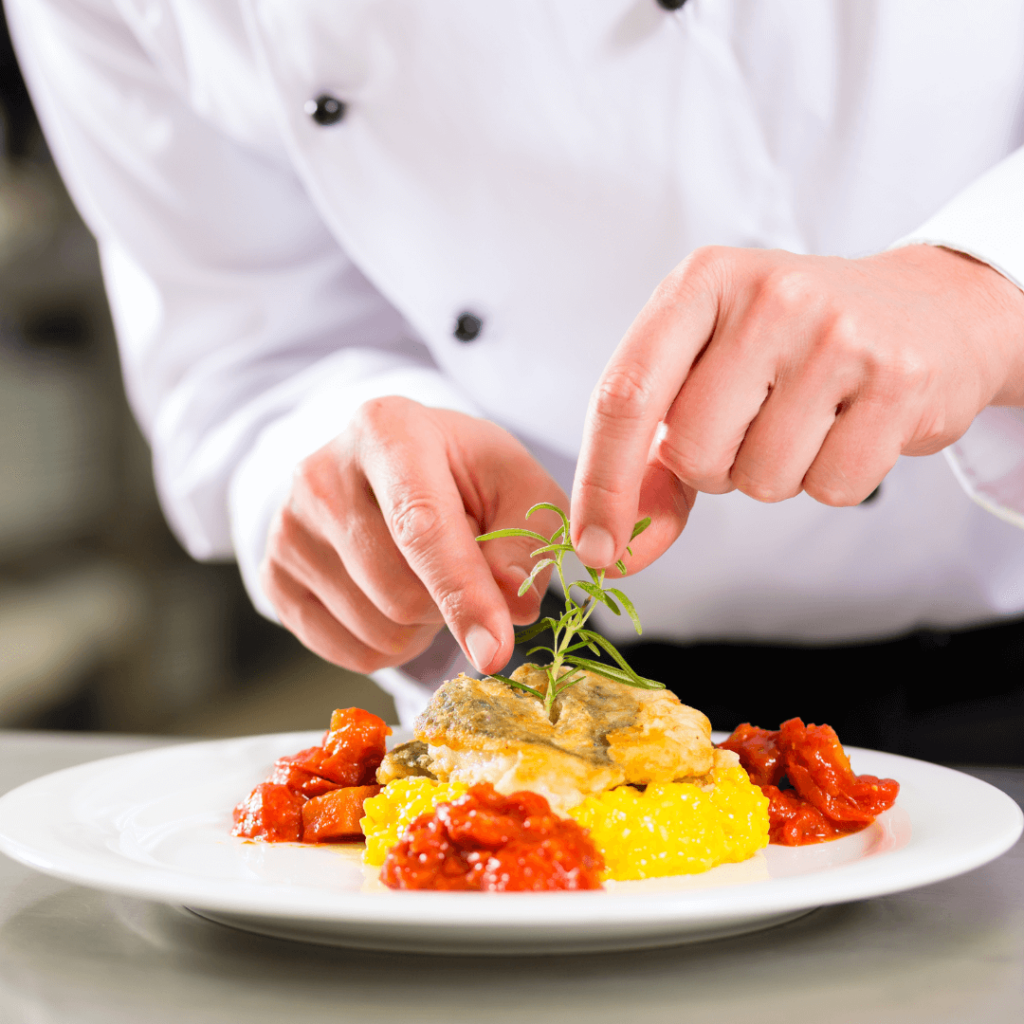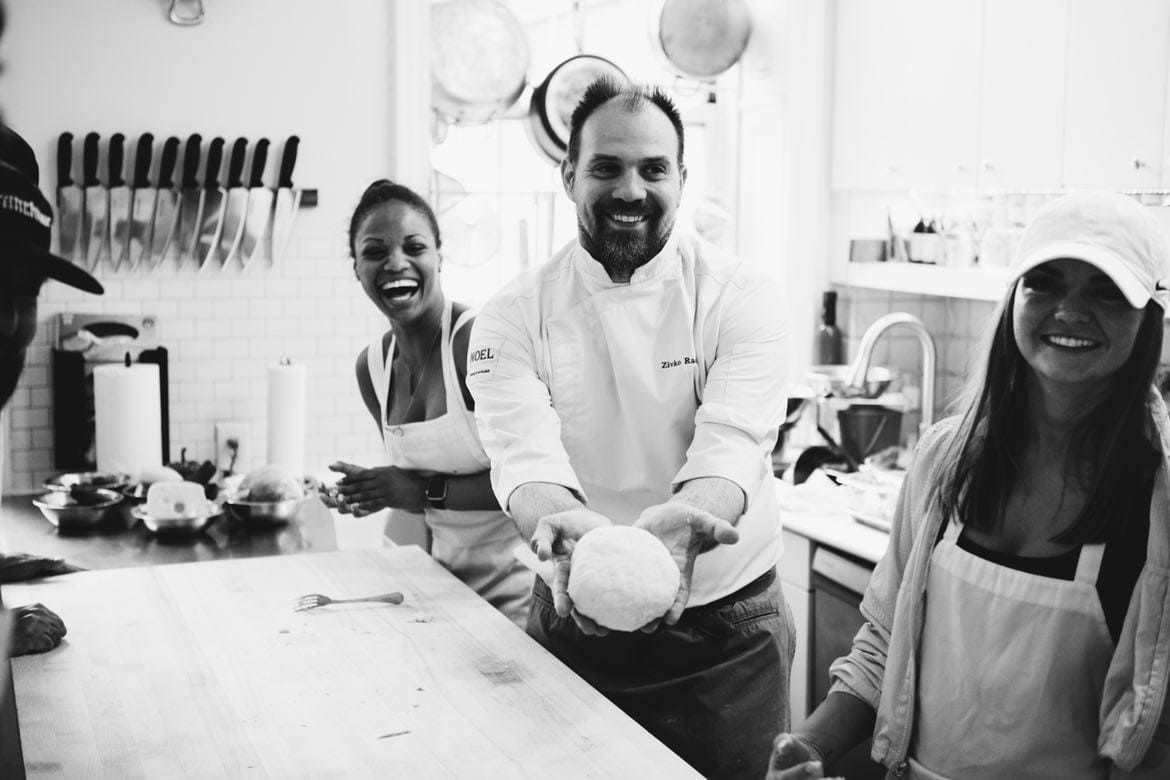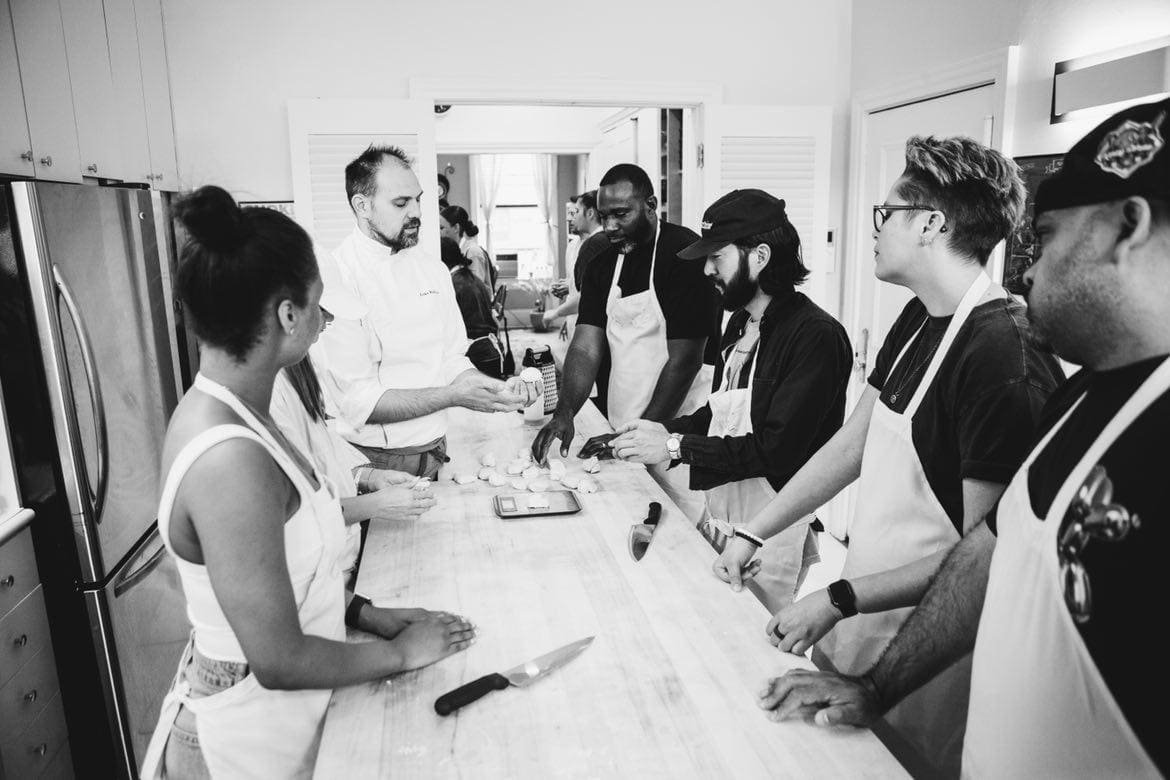New York City offers many opportunities for chefs at the beginning of their careers. If you’re passionate about cooking and looking to turn your culinary skills into a profitable business, becoming a personal chef in NYC might be the perfect path for you. This guide will walk you through the steps to achieve this goal, from honing your skills to building a client base.

1. Understanding the Role of a Personal Chef in NYC
A personal chef differs from a private chef mainly in terms of clientele and work environment. While a private chef typically works for one family or individual, a personal chef serves multiple clients, often preparing meals in their homes or delivering pre-cooked dishes. Personal chefs provide customized meal planning and cooking services tailored to their clients’ preferences and dietary needs.
2. Developing Your Culinary Skills
To succeed as a personal chef in NYC, you need a strong foundation in culinary techniques and a broad repertoire of recipes. Here’s how to build and refine your skills:
- Culinary Education: While formal education isn’t mandatory, attending a culinary school can provide valuable training and credentials. NYC boasts renowned institutions like the Culinary Institute of America and the International Culinary Center.
- Hands-On Experience: Work in various kitchen environments to gain diverse cooking experiences. Whether it’s in restaurants, catering companies, or under-established chefs, this practical experience is crucial.
- Specialization: Consider specializing in a specific cuisine or dietary niche (e.g., vegan, gluten-free, keto). This can help you stand out in a competitive market.
3. Legal Requirements and Certifications
Operating as a personal chef in NYC requires compliance with local regulations. Ensure you have the necessary licenses and certifications:
- Food Handler’s Permit: Obtain a food handler’s permit from the NYC Department of Health and Mental Hygiene.
- Business License: Register your business with the NYC Department of Consumer Affairs if you’re operating as a sole proprietor or form an LLC/corporation for legal and tax benefits.
- Insurance: Get liability insurance to protect yourself and your business in case of accidents or food-related illnesses.
4. Building a Business Plan
A well-structured business plan is essential for establishing and growing your chef business. Here’s what to include:
- Services Offered: Define the range of services you will provide, such as meal planning, grocery shopping, in-home cooking, or meal delivery.
- Target Market: Identify your ideal clients. Are they busy professionals, families, or individuals with specific dietary needs?
- Pricing Strategy: Set your prices based on market research, your experience level, and the services you offer. Consider different pricing models, such as per meal, hourly rates, or subscription plans.
- Marketing Plan: Develop strategies to promote your services, including a professional website, social media presence, and networking within your community.
5. Setting Up Your Kitchen
While you’ll often cook in clients’ homes, having a well-equipped kitchen of your own is important for meal prep and testing new recipes. Invest in high-quality tools and equipment that can handle diverse cooking tasks. Essential items include:
- Chef’s Knife: A good-quality chef’s knife is indispensable.
- Cookware: Invest in versatile pots, pans, and baking sheets.
- Small Appliances: Consider a food processor, blender, and stand mixer.
- Storage: Use airtight containers for ingredient storage and meal delivery.
As a personal chef in NYC, it’s essential to be well-prepared and proficient in using your culinary tools.
6. Finding Your First Clients
Building a client base is one of the most challenging aspects of starting as a personal chef. Here are some strategies to get your first clients:
- Networking: Leverage your personal and professional networks. Inform friends, family, and colleagues about your new venture. Attend local food events and join professional associations like the American Personal & Private Chef Association.
- Online Presence: Create a professional website showcasing your services, menu options, and testimonials. Use social media platforms like Instagram and Facebook to share photos of your dishes and engage with potential clients.
- Collaborations: Partner with local gyms, nutritionists, and health clubs. These establishments often have clients who need personalized meal services.
- Referrals: Encourage satisfied clients to refer you to others. Offer incentives such as discounts or free meals for successful referrals.
7. Providing Exceptional Service
To thrive as a personal chef in NYC, delivering exceptional service is paramount. Here’s how to ensure client satisfaction:
- Customization: Tailor your menus to suit each client’s preferences and dietary requirements. Regularly seek feedback and adjust your offerings accordingly.
- Professionalism: Maintain a high level of professionalism in all interactions. Punctuality, cleanliness, and respectful communication are key.
- Consistency: Consistently deliver high-quality meals. Pay attention to presentation, flavor, and nutritional balance.
- Flexibility: Be adaptable to last-minute changes or special requests. Flexibility can greatly enhance client satisfaction and loyalty.
8. Growing Your Business
Once you’ve established a stable client base, focus on growing your business. Here are some tips:
- Expand Your Services: Offer additional services such as cooking classes, catering for small events, or personalized cooking demonstrations.
- Hire Help: As your business grows, consider hiring assistants or other chefs to help manage the workload.
- Client Retention: Foster long-term relationships with clients through loyalty programs, special offers, and regular check-ins.
- Continuous Learning: Stay updated with the latest culinary trends and techniques. Attend workshops, read culinary books, and network with other professionals.
9. Leveraging Technology
Use technology to streamline your operations and enhance client experience. Tools like meal planning software, online booking systems, and digital marketing platforms can help manage your business efficiently.
10. Staying Inspired
Maintaining passion and creativity in your cooking is vital. Experiment with new recipes, explore different cuisines, and keep your culinary skills sharp. A personal chef’s journey is continuous, with opportunities for growth and innovation at every turn.
Conclusion
Becoming a personal chef in NYC is a rewarding career path for those with a passion for cooking and a desire to provide personalized culinary experiences. By honing your skills, understanding the business aspects, and delivering exceptional service, you can build a successful personal chef business in one of the world’s most dynamic food cities. Remember, the journey requires dedication, continuous learning, and a love for creating memorable meals for your clients.



